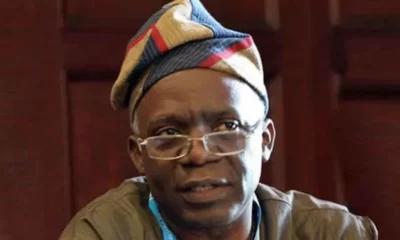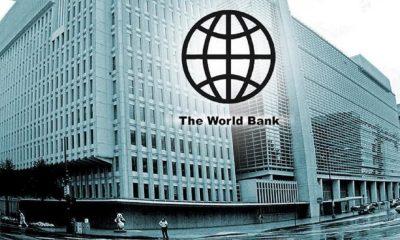Headline
Economic Reforms: Nigerians Under Poverty Line Rise To 104m — World Bank
Published
4 months agoon
By
Editor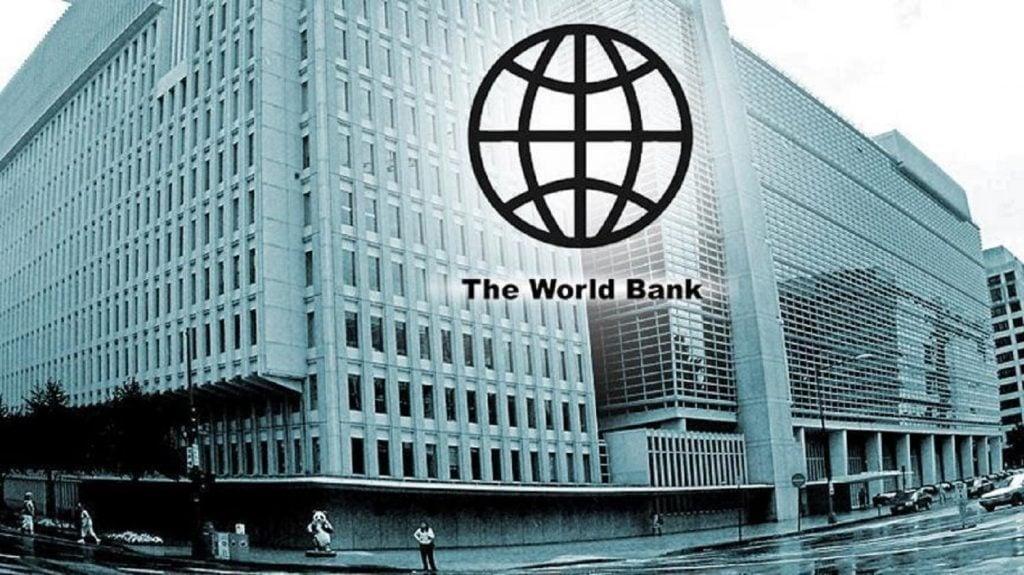
A World Bank report has indicated that Nigeria’s poverty level has taken a notch higher, at the backdrop of the recent economic and fiscal reforms.
The key reforms include the removal of petrol subsidy and the foreign exchange market rate restructuring.
The bank, however, commended the Federal Government for what it considered ‘bold reforms’ necessary to rescue Nigeria from fiscal cliff, describing the current pains as temporary.
But it also said the policies have created intense pressures on cost of living, which have pushed more Nigerians into hardship, with 104 million now living below the poverty line.
The World Bank report also indicated that the number of poor people in Nigeria had grown from 95 million in 2021 to 100 million in 2022, while the Nigerian Bureau of Statistics, NBS, indicated that the figure was 82.9 million in 2019 and 85.2 million in 2020.
In its World Bank Nigeria Development Update, NDP, entitled ‘Turning the Corner: Time to Move From Reforms to Results’, the bank stresses the need to continue with the reform momentum to complete the reforms and to address the costs of the reforms.
It further stated: ‘‘Inflation remains at record high levels for Nigeria, 27.3 per cent Year-on-Year, YoY, in October 2023, partly driven by the one-off price impacts of the removal of the gasoline subsidy.
READ ALSO: We Have Enough Cash In Circulation, Says CBN
‘‘The impact of this is especially hard on poor and vulnerable citizens. The FX market has remained volatile and in a period of continuing adjustment to the new policy approach, with significant fluctuations in the exchange rate in both the official and the parallel markets. Revenue gains from the FX reform are visible.
‘‘However, there is a need for more clarity on oil revenues, especially the financial gains of Nigeria National Petroleum Corporation Limited, NNPCL, from the subsidy removal, the subsidy arrears that are still being deducted, and the impact of this on Federation revenues.”
In his appraisal of the country’s reforms, Shubham Chaudhuri, World Bank Country Director for Nigeria, stated: “The petrol subsidy and FX management reforms are critical steps in the right direction towards improving Nigeria’s economic outlook. Now is the time to truly turn the corner by ensuring coordinated fiscal and monetary policy actions in the short to medium term.
“Continued reform implementation can ensure that Nigeria benefits from the difficult adjustments underway. This includes ensuring that improved oil revenues following the sharply increased PMS price accrue to the Federation.
‘‘In the medium-term, the economy will then begin to benefit from increasing fiscal space for development spending, including on power and transport infrastructure, as well as on human capital.”
He further said that between N300 billion –N400 billion was expended on fuel subsidy monthly, before the subsidy removal and that the expectation was that the NNPCL should have been paying such amount to the Federation Account, but which has not been the case.
World Bank’s recommendations
The latest NDU report recommended specific actions required to further sustain and achieve the full benefits of reforms already embarked on by the Government.
READ ALSO: Rivers Lawmakers That Defected Have Lost Their Seats – Lawyer
These include: controlling inflation and improving the stability of the FX market; achieving fiscal consolidation by sustaining savings from the PMS subsidy reform and improving non-oil revenues; addressing structural barriers to growth, such as removing trade barriers.
It stated further: “With the continued implementation of macroeconomic stabilization reforms, Nigeria’s economy is expected to grow at an average annual rate of 3.5 per cent in 2023-2026, or 0.5 per centage points higher than in a scenario where the reforms had not been implemented.”
Alex Sienaert, World Bank Lead Economist for Nigeria and co-author of the Report, also stated: ‘‘In 2024, Nigeria has an opportunity to turn the corner to a more stable and predictable macroeconomic environment, and easier access to foreign exchange (FX) and imported inputs, which is critical to creating new jobs and lifting people out of poverty”.
The NDU report indicated that Nigeria was not yet out of the woods but on the path to full recovery, as a result of the various policies being implemented by both fiscal and monetary authorities.
The World Bank called on the Nigerian National Petroleum Company Limited (NNPCL) to make public its Statement of Accounts and transparently disclose its revenue inflows.
The report read in part, “The removal of the subsidy was announced on May 29 and pump prices were adjusted on June1.
“This results in expected fiscal savings of around N2 trillion in 2023 or 0.9 per cent of GDP.
“Between 2023 and 2025, the expected gains are over N11 trillion, against a scenario in which the subsidy had continued’’.
READ ALSO: JUST IN: FG Exempts Universities, Polytechnics, Others From IPPIS
NNPCL’s account for scrutiny —Edun
The Minister of Finance and Coordinating Minister for the Economy, Mr. Wale Edun, also insisted that NNPCL’s account must be audited.
His words, “There will be earnest scrutiny and I am sure NNPC is getting ready for that. We want revenue to come into the government coffers from NNPC and all other revenue agencies.”
The last two Minister of Finance, namely, Mrs. Kemi Adeosun and Mrs. Zainab Ahmed had publicly said that the accounts of the NNPCL would be looked into, but there has been no report of such audit made public.
Mr. Edun also revealed that the federal government would come up with a new structure of salaries in 2024.
He did not give details, other than that it was statutory to review salaries every five years, according to the Salaries and Wages Commission Act and that all stakeholders including labour leadership would be involved.
Huge FX in Domiciliary Accounts
The Minister of Finance revealed that wealthy Nigerians were holding huge sums of dollars and other foreign currencies in their Domiciliary bank accounts in the country.
According to him, there was a lot of FX liquidity in Nigeria and the Federal Government would take steps to make holders of such accounts release the money.
Mr. Edun said that the government would not force holders of such accounts to give them up but would provide incentives to enable them invest in attractive instruments, going forward.
READ ALSO: FG Plans Mortgage Scheme For Nigerians In US, Canada, UK
I‘m not against quasi-fiscal interventions but —Cardoso
The Governor of the Central bank of Nigeria, Mr. Olayemi Cardoso, who was a panelist at the NDU presentation said that he was not against quasi fiscal interventions by the CBN but that his focus would remain how to reduce inflation through price stability.
On the controversy around his failure to convene a Monetary Policy Meeting since coming into office, the governor said that the past frequent MPCs did not achieve their objectives and that he would not continue along that line.
His words, “To what extent did the meetings achieve their objectives? The answer is no. That is why we have chosen to do it differently. Holding these meetings take a lot of time and energy.”
According to him, his team holds Liquidity Management meetings every 8.00 am to review the liquidity situation in the system and that he would take every necessary action to mop up excess liquidity in the system, adding, “we have increase OMO (Open Market Operations) both in value and volume.”
Industry Minister counters W/Bank on power subsidy
In her contribution, the Minister of Industry, Doris Uzoka-Anite, disagreed with the position of the World bank on Power subsidy.
The bank had advocated a power regime without subsidy in order to boost investor confidence and ensure a cost- reflective tariff.
However, the minister insisted, “there is nothing wrong with power sector subsidy. Subsidy in the power sector is subsidy that supports production. Countries everywhere support production and export.”
VANGUARD
You may like


Nigeria Set To Receive Fresh $2.2bn World Bank Loan – Edun


VIDEO: Reject IMF, World Bank Offers – Falana Cautions FG


Nigeria’s Poverty Reduced By Seven Per Cent – World Bank


99.9% Households Yet To Receive FG’s Cash Transfer – W’Bank


World Bank Appoints Finance Minister Wale Edun


World Bank Approves Fresh $700m Loan For Nigeria
Headline
Sad Story: Nigerian Who Relocated To UK In 2022 Beat Wife To Death With Skateboard
Published
14 hours agoon
April 26, 2024By
Editor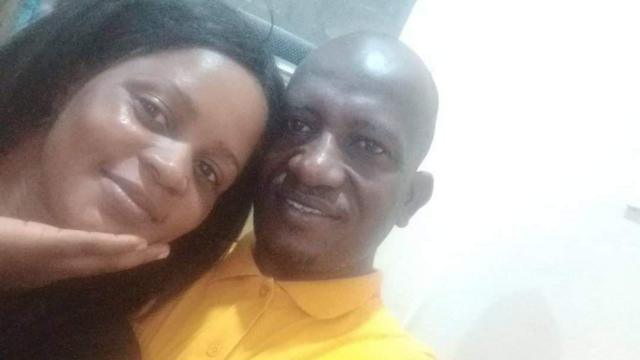
A United Kingdom-based Nigerian man, Olubunmi Abodunde, has beaten his wife, Taiwo, to death with their son’s skateboard, Daily Mail reports.
The couple, who had three children, arrived in the UK from Nigeria in 2022 and always clashed over alleged affairs and arguments about bills.
According to the news platform, 48-year-old Abodunde had been repeatedly investigated by Suffolk Police about domestic violence and was due to go on trial for murder but changed his plea to guilty on Wednesday after a jury had been sworn in.
During the abuse, officers heard ‘a number of bangs’ inside the house, which Abodunde had gone into, despite bail conditions imposed the day before that banned him from the property following another violent episode.
When they finally entered 25 minutes later, they found the wife, 41-year-old Taiwo, with her ‘skull smashed in’.
However, Judge Martyn Levett, sitting at Ipswich Crown Court, warned him the only possible sentence was life imprisonment.
READ ALSO: Suspect Arrested Over Murder Of British-Nigerian Man In London
Suffolk Constabulary has referred itself to the Independent Office of Police Conduct, which confirmed three officers were under investigation.
An IOPC spokesman said, “We advised two Suffolk officers that they are under investigation for potential breaches of the police standards of professional behaviour at the level of gross misconduct.
“We advised another officer that they are under investigation at the level of misconduct.”
Abodunde had a history of jealousy and suspicion and accused his wife of having affairs. He had been investigated by police a number of times over alleged domestic violence incidents before his wife’s death.
He was arrested on April 27 last year when police arrived at the couple’s home in Newmarket, Suffolk, and found Mrs Abodunde with a split lip.
Later that day, he was freed on police bail with the condition that he stayed away from the marital home and didn’t approach his wife.
READ ALSO: JUST IN: Four-year-old Boy Dies In Abuja School, Parents Suspect Foul Play
But after working a night shift at Tesco, he went home just after 9 am to allegedly pick up his mobile phone.
Two officers arrived at 9.20 am to take a statement from Mrs Abodunde about the previous night’s incident and heard repeated banging noises inside.
But it wasn’t until 9.55 am that they forced their way in after getting approval from senior officers and found Mrs Abodunde ‘obviously dead’ near the front door.
A post-mortem examination later showed she had been throttled until she fell unconscious, then stamped on until her ribs were broken before her husband used the skateboard to finish her off. The blows were so violent that the skateboard was damaged.
Prosecutor Simon Spence KC told the court the banging officers heard was likely to have been Abodunde continuing to attack his wife after she was unconscious or dead.
READ ALSO: LIST: 25 Countries Where TikTok Is Banned
Mrs Abodunde had a job as a care home assistant in Cambridge, but her husband, who had trained as a civil engineer, was unable to find work in his profession and took shifts at Tesco and Wickes.
After his arrest for the murder, Abodunde was taken to hospital “because he appeared to have some sort of mental episode”.
He later claimed in a police statement he had acted in self-defence, saying, “My wife has subjected me to physical abuse for a number of years.
“On November 28, we got into an argument. She ran at me with a knife, I grabbed the knife and cut my hand. I was defending myself.”
But the court heard while he did have an injury to his hand, there wasn’t a knife near his wife’s body.
Nneka Akudolu KC, defending, said the level of violence was ‘completely out of character’ for her client and might have been affected by medication he was taking. But she said no medical evidence would be provided to support this claim.
READ ALSO: UK Varsity Offers Nigerians N44m Scholarships
Detective Inspector Dan Connick, of Suffolk Police, said after the hearing, “This was an awful attack on a woman that has had a lasting impact on the community and, most importantly, on the victim’s family.
‘We are pleased that Taiwo’s family will no longer have to go through the pain of a trial.
‘Our thoughts remain with Taiwo’s family and friends and hope this result will bring some small comfort to them.’
Taiwo Abodunde worked for Cambridge Manor Care Home, which provides dementia care and residential and respite care.
A spokesman for the facility, which is owned by TLC Care, said: ‘We are all deeply shaken and upset by the tragic death of Taiwo, who was a much-loved member of our home community.
‘Our thoughts and deepest condolences are with her family. Taiwo always cared for those we support with compassion and kindness, and she will be greatly missed by all of us and our residents.’
Abodunde was remanded in custody and will be sentenced on May 9.
Headline
GWR: Ghanian Student Sets New Record For Hugging 1,123 Trees In One Hour
Published
16 hours agoon
April 26, 2024By
Editor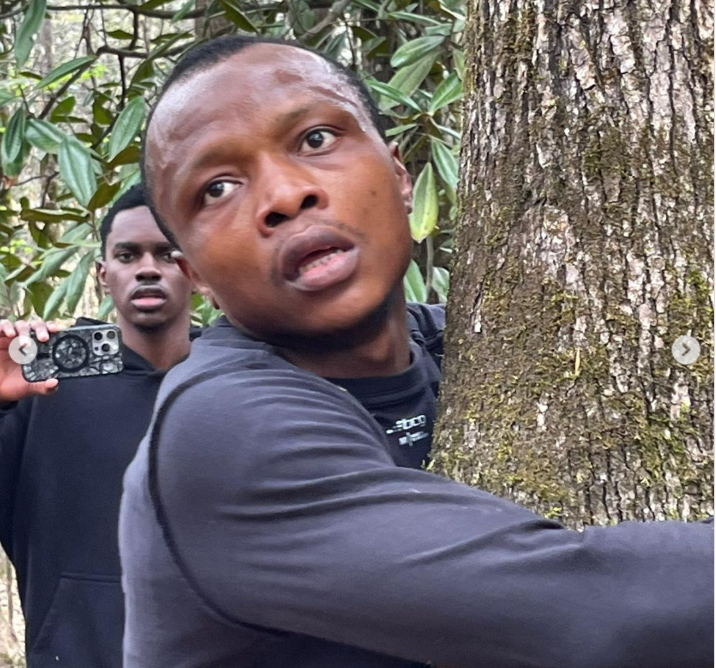
A 29-year-old Ghanaian environmental activist and forestry student, Abubakar Tahiru, has etched his name in the Guinness Book of World Records by hugging 1,123 trees in one hour.
The Guinness World Record announced this on Friday, adding that Tahiru’s accomplishment not only makes him the record holder but also the first person to ever hold this title as he “easily surpassed the minimum requirement of 700.”
The event was said to have taken place at the Tuskegee National Forest in Alabama, USA, where he embraced nearly 19 trees per minute.
According to GWR, Tahiru grew up in a farming community in Tepa, Ghana, where he developed a keen interest in nature and its conservation.
After completing his undergraduate degree specialising in forestry at one of Ghana’s top universities, he moved to Alabama last year to begin his master’s degree in forestry at Auburn University.
Describing the challenge, GWR disclosed that a successful tree hug is defined as both arms wrapped around a tree in a close embrace. No tree may be hugged more than once, and no damage can be caused to any tree, or else the attempt is disqualified.
It further stated that Tahiru attempted this challenge while he was fasting during Ramadan, preventing him from drinking water despite the strenuous activity.
He also had to move quickly between trees while ensuring that each hug met the required standards.
Speaking with GWR, Tahiru said, “Not being able to drink water throughout the attempt posed a significant challenge, especially given the physical exertion required.
“However, this also proved to be helpful in a way, as there was no need to pause for water breaks, allowing me to continue the attempt uninterrupted from start to finish.
“Achieving this world record feels incredibly rewarding.”

United States President Joe Biden recently signed a bill that could potentially result in the ban of TikTok in the US if its Chinese-owned parent company, ByteDance, fails to sell it within a year.
US lawmakers are concerned about the potential national security risks associated with the app, particularly if the Chinese government were to gain access to the data it collects.
Many countries have taken action to limit or ban TikTok, citing worries about privacy, security, or ethical issues.
Different approaches have been taken by various countries, with some implementing comprehensive restrictions and others focusing on particular features of the app or a partial ban on government devices.
Here is a list of countries that have implemented various forms of restrictions:
Countries with a complete ban
China
TikTok’s international version is not accessible within China. Instead, users are required to download Douyin, the Chinese counterpart of TikTok, which is subject to strict content control by the Chinese Communist Party.
Senegal
Senegal implemented a complete ban on the application following allegations that an opposition candidate had utilised the platform to disseminate “hateful and subversive messages.” The Senegalese government has declined to restore the app until a system is created that enables them to delete individual accounts.
Somalia
The Somali government officially outlawed TikTok, Telegram, and 1XBet, an online betting platform, in August 2023.
READ ALSO: UK Varsity Offers Nigerians N44m Scholarships
North Korea
Access to the internet is heavily restricted for the majority of North Korean citizens. While a select few websites and apps are allowed for the privileged elite, TikTok is not included in this list.
Afghanistan
In April 2022, the Taliban government decided to ban TikTok, citing concerns about its influence on young people.
India
India banned TikTok in 2020, including on personal devices, following a border clash between China and India in 2020. The ban was prompted by concerns about data theft and the government’s claim that certain apps were stealing. Many creators migrated to YouTube Shorts and Instagram Reels.
Iran
TikTok, along with other globally popular social media platforms like X and Facebook, has been banned by the Islamic Republic.
Uzbekistan
Since July 2021, TikTok has been inaccessible in Uzbekistan due to the authorities’ claim that the app does not adhere to the country’s personal data protection laws.
Countries with a partial ban on TikTok
Indonesia
In October 2023, Indonesia took action against TikTok Shop, a feature of the app that enables creators to sell products to their followers, due to its violation of the country’s e-commerce laws.
READ ALSO: Again, FG Talks Tough, Threatens To Revoke Lokoja-Benin Road Contract
Kyrgyzstan
In August 2023, the small country, which was once part of the Soviet Union, decided to ban TikTok. The government justified this action by stating that the application harmed the growth and well-being of children.
Russia
There are limitations on the content that Russians can access on TikTok, resulting in a primary focus on videos created by Russian users. Recent reports indicate that the Russian government is planning to prohibit the use of TikTok, to promote the adoption of local social media platforms among its citizens.
Countries with bans on government-owned devices
In April 2023, the Australian government decided to ban TikTok on their devices. However, it remains accessible on devices owned by the general public.
Austria
In May 2023, TikTok was banned on all devices used by government employees in Austria.
Canada
On February 28, Canada banned the use of TikTok on all devices provided by the government because of concerns regarding privacy and security.
Denmark
In March 2023, Denmark’s Ministry of Defence decided to ban the use of the app on its employees’ work phones. Additionally, the country’s main public service broadcaster implemented specific protocols, requiring journalists to obtain special approval before using the app for reporting purposes. This action was taken in response to a warning from Denmark’s Centre for Cybersecurity.
Estonia
In March 2023, the use of TikTok on the work phones of state officials in Estonia was banned.
European Union
Employees of the European Parliament, European Commission, and E.U. Council are no longer allowed to have TikTok on their work phones, as the three main institutions of the E.U. implemented a ban.
France
In March of 2023, France banned the use of Twitter, Instagram, and TikTok on government employees’ mobile devices.
READ ALSO: Outrage Over TikTok Videos Of Cash-flaunting Bandits
United Kingdom
In March 2023, the U.K. banned all government employees from using TikTok on government-provided mobile devices.
United States
The US military and US Congress have both taken action to block access to TikTok on all of their personnel’s devices.
Nearly half of the states have outright banned the app on state-owned devices, and in March 2023, the federal government followed suit.
Ireland
In April 2023, the Irish government implemented a ban on TikTok for use on government devices.
Belgium
The Belgian government announced in March 2024 the ban of the app on all government devices. TikTok remains accessible on devices not associated with government entities.
Taiwan
In December 2022, Taiwan implemented a ban on the usage of Chinese-made software, including TikTok, on all government devices. This decision came after a warning from the FBI.
Latvia
The Latvian Foreign Ministry banned the app from official company phones in March 2023.
Malta
In Malta, government-provided cell phones have restricted access to TikTok and other non-government applications.

Pollution: Activists Want N’Delta Environmental Remediation Trust Fund Established

Oil Spill: Pay A Visit To Impacted N’Delta Communities, Environmental Activists Urge Tinubu

Three Suspected Pipeline Vandals Caught In Edo
Trending

 Entertainment5 days ago
Entertainment5 days agoBridesmaids’ Dance At Wedding Causes Stir On Social Media [VIDEO/PHOTOS]

 Metro5 days ago
Metro5 days agoVIDEO: ‘UNN Lecturer’ Caught Pants Down With Married Student

 News3 days ago
News3 days agoDrama! Supporters Of Yahaya Bello Perform Rituals to Prevent His Arrest By EFCC [Video]

 Headline4 days ago
Headline4 days agoDrama As Women Fight Dirty, Breasts Fall Out During Spring Break Outing In US [PHOTOS/VIDEO]

 News3 days ago
News3 days agoVIDEO: Force PRO Orders Arrest Officers Caught On Video Bashing Driver’s Car

 Entertainment3 days ago
Entertainment3 days agoNollywood Actor, Zulu Adigwe Is Dead

 Headline3 days ago
Headline3 days agoMeet 17-year-old Nigerian Who Won $3.5m Worth Of Scholarships From Harvard, 13 Other Foreign Universities

 Metro3 days ago
Metro3 days agoEdo Cultists Kill Rival In Daughter’s Presence, Abandon Getaway Car

 News5 days ago
News5 days agoIGP, Jonathan Disagree Over State Police

 Headline4 days ago
Headline4 days agoVideo Of Girl Being Bullied, Slapped At Lead British School Sparks Outrage Online [PHOTOS/VIDEO]


